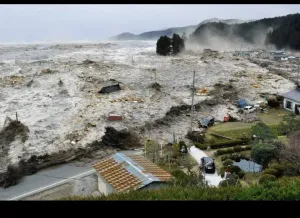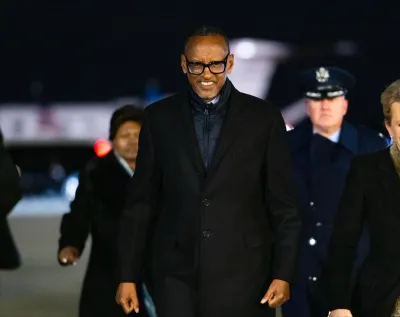

Travellers aboard an aircraft completely attired in masks
As governments and the air transport industry spar over opening up of air travel, IATA, the International Air Transport Association, has laid out alternatives to the quarantine measures currently being adopted by many countries around the world.
The global airline industry is facing massive losses after international travel was pared down to a minimum as governments responded to the Covid19 pandemic. As air travel restarts however, governments have made two-week quarantines mandatory for arriving international passengers, a measure that IATA says is equivalent to a lockdown on the industry.
“Imposing quarantine measures on arriving travelers keeps countries in isolation and the travel and tourism sector in lockdown. Fortunately, there are policy alternatives that can reduce the risk of importing COVID-19 infections while still allowing for the resumption of travel and tourism that are vital to jumpstarting national economies. We are proposing a framework with layers of protection to keep sick people from traveling and to mitigate the risk of transmission should a traveler discover they were infected after arrival,” says Alexandre de Juniac, IATA’s Director General and CEO.
To address government concerns over the risk of importing Covid-19 cases through air travel, IATA has laid out alternatives that would prevent people that are sick from travelling; reduce the possibility of transmission in instances where people may travel while unknowingly being infected and facilitate a smoother resumption of international air travel.
Flexibility in bookings
To minimise the risk of imported cases, IATA member airlines are offering passengers’ flexibility in rescheduling travel. That should encourage people to stay home and postpone travel plans if they feel unwell or potentially exposed to Covid 19. While supporting health screening by governments in the form of health declarations, IATA is recommending that paper documents be replaced with standardized contactless electronic declarations via government web portals or government mobile applications. That approach would address concerns about privacy of personal health information and also cut the risk of infection through paper documents.
The airline lobby further says although they are not the most effective method for detecting Covid-19 symptoms, non-intrusive temperature checks can play an important role by preventing people from travelling while ill. IATA adds that recent surveys found that temperature checks made 80 percent of travellers feel safer, making them an important confidence boosting measure.
IATA also says pre-departure testing for Covid, undertaken 48 hours before the journey, could also be a better alternative to quarantining for passengers from high-risk countries, provided the test data can be independently validated. Independent validation is important for the test data to be mutually recognisable between states but the destination country could also choose to conduct its own Covid specific test if in doubt.
To reduce the risk of transmission during trip, IATA is urging states implement the International Civil Aviation’s “Take-Off,” guidelines which include mask wearing throughout the travel process, sanitization, health declarations and social distancing where possible.
If concerns about privacy can be resolved, IATA says mobile applications can be used for contact tracing in instances where a positive case is detected after arrival. The association says rapid identification and isolation of contacts can contain the risk of spread without large-scale economic or social disruption.
“Safely restarting the economy is a priority. That includes travel and tourism. Quarantine measures may play a role in keeping people safe, but they will also keep many unemployed. The alternative is to reduce risks through a series of measures. Airlines are already offering flexibility so there is no incentive for sick or at-risk people to travel. Health declarations, screening and testing by governments will add extra layers of protection. And if someone travels while infected, we can reduce the risk of transmission with protocols to prevent the spread during travel or when at destination. And effective contact tracing can isolate those most at risk without major disruptions,” says de Juniac.
IATA recognizes that there will be challenges to implementing all the proposed measures but governments should be driven by a common motivation to find solutions to the current impasse. The World Travel and Tourism Council estimates that travel and tourism accounts for 10.3percent of global GDP and up to 300 million in direct and indirect employment.
“Data transmission, required for health declarations, testing and tracing, raises privacy concerns. And mutually recognized standards would be needed for testing. Governments have a common interest in finding solutions. The rapid agreement by governments to ICAO’s Take-Off guidelines demonstrates that progress on complex issues is possible where there is the political will to do so,” said de Juniac.
IATA projects that airlines will make $84 billion this year, as a result of disruption induced by the pandemic. The association says while quarantine measures might succeed at protecting the health of populations, they are killing jobs.
“Mandatory quarantine measures stop people from traveling. Recent public opinion research revealed that 83percent of travelers would not even consider traveling if quarantine measures were imposed on travelers at their destination. And analysis of trends during the lockdown period shows that countries imposing quarantine saw arrivals decrease by more than 90 percent—an outcome that is similar to countries that banned foreign arrivals.
“A layered approach to safety has made flying the safest way to travel while still enabling the system to function efficiently. That should be an inspirational framework to guide governments in protecting their citizens from the terrible risks of both the virus and joblessness. Quarantine is a lop-sided solution that protects one and absolutely fails at the other. We need government leadership to deliver a balanced protection,” de Juniac says.














Michael Wakabi
Leave a Comment
Your email address will not be published.